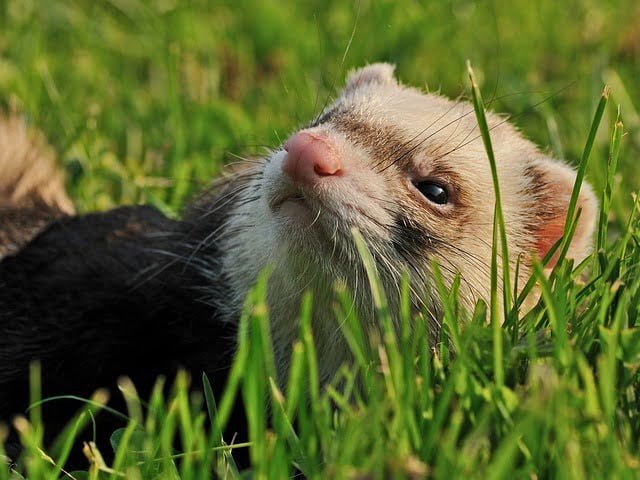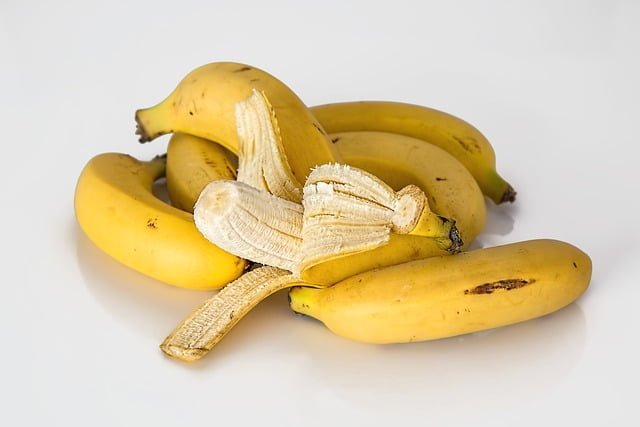When it comes to feeding our beloved ferrets, it’s important to provide them with a balanced and nutritious diet. As curious critters, they may show interest in a variety of foods, including bananas. But can ferrets eat bananas? In this article, we’ll explore the potential risks and benefits of feeding bananas to ferrets, as well as alternative treats that are more suitable for their dietary needs.

Understanding Ferret Nutrition
Before delving into the specifics of feeding bananas to ferrets, it’s essential to understand their unique nutritional requirements. Ferrets are obligate carnivores, which means that their digestive systems are designed to process and thrive on a diet primarily consisting of meat. Their bodies have evolved to efficiently digest and absorb nutrients from animal protein sources.
Unlike omnivores and herbivores, ferrets lack a cecum, a part of the intestines responsible for breaking down complex carbohydrates and fiber. This physiological characteristic makes it difficult for ferrets to digest and metabolize foods that are high in carbohydrates, such as fruits and vegetables.
The Risks of Feeding Bananas to Ferrets
While bananas are not toxic to ferrets, they can still pose risks to their health if consumed in large quantities. Here are some reasons why feeding bananas to ferrets may not be recommended:
- Digestive Upset: Ferrets have sensitive digestive systems, and the high sugar and fiber content in bananas can lead to digestive upset, including diarrhea and stomach discomfort.
- Weight Gain: Bananas are relatively high in calories and carbohydrates. Feeding ferrets too many bananas can contribute to weight gain and obesity, which can lead to various health issues.
- Tooth Decay: Ferrets’ teeth are not designed to handle the corrosive effects of sugar. Regular consumption of high-sugar fruits like bananas can increase the risk of tooth decay and dental problems in ferrets.
- Pancreatic Issues: The high sugar content in bananas can also contribute to the development of insulinoma, a condition characterized by tumors in the pancreas. Insulinoma can have serious consequences for ferrets’ health, including brain damage and life-threatening complications.
Given these risks, it’s best to avoid feeding bananas to ferrets and opt for more suitable treats that align with their carnivorous nature.
Healthy Alternatives for Ferret Treats
While bananas may not be the ideal treat for ferrets, there are plenty of other options that can satisfy their taste buds while providing essential nutrients. Here are some healthy alternatives to consider:
- Baby Foods with High Meat Content: Look for baby foods specifically designed for infants, with a high meat content. These can be a convenient and nutritious treat for your ferret.
- Insects: Ferrets are natural hunters, and insects can provide both mental and physical stimulation. Small, live insects like crickets can be an exciting and protein-rich treat for your furry friend.
- Eggs: Raw or cooked eggs, without any seasoning, can be a great source of protein for ferrets. They can be scrambled or served as a special treat, but remember to keep portion sizes small.
- Raw Animal Bones: Raw animal bones, such as chicken or turkey necks, can help clean your ferret’s teeth and provide them with essential calcium. Ensure the bones are appropriate in size and monitor your ferret while they enjoy this treat.
- Raw Animal Meat: Offer small amounts of raw animal meat, such as rabbit, lamb, or minced beef. This provides ferrets with the protein they need while satisfying their carnivorous instincts.
- Organ Meats: Livers, hearts, and kidneys from various animals can be a nutritious addition to your ferret’s diet. These organ meats are rich in vitamins and minerals that support their overall health.
- Frozen or Pre-Killed Whole Prey: For a more natural approach, you can offer frozen or pre-killed whole prey animals like mice, rats, or chicks. These provide an opportunity for ferrets to engage in their instinctual hunting behaviors.
- Small Amounts of Cooked Meats: Occasionally, you can offer small amounts of cooked meats like chicken or turkey as a special treat. Avoid seasoning or adding any ingredients that may be harmful to your ferret.
Remember to introduce new treats gradually and monitor your ferret’s response to ensure they tolerate them well. Every ferret is unique, so it’s important to consult with your veterinarian for personalized advice on your ferret’s dietary needs.

Conclusion
While bananas may be a tempting treat, it’s best to avoid feeding them to ferrets due to their high sugar and fiber content. Ferrets have specific dietary requirements as obligate carnivores, and their digestive systems are not designed to process carbohydrates effectively. Opt for healthy alternatives, such as baby foods with high meat content, insects, eggs, raw animal bones and meats, organ meats, and frozen or pre-killed whole prey.
By providing your ferret with a balanced and appropriate diet, you can ensure their overall health and well-being. Remember to consult with your veterinarian for specific dietary recommendations and guidance tailored to your ferret’s individual needs. With the right approach, you can keep your ferret happy, healthy, and satisfied without the need for bananas or other unsuitable foods.





